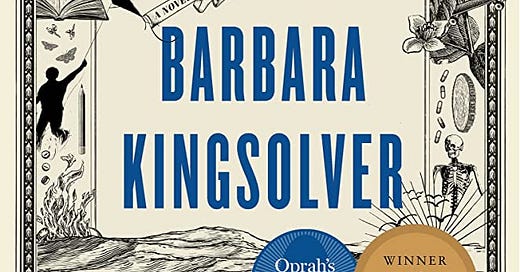DEMON COPPERHEAD: The Urban Liberal Response to Appalachian Opioid Narratives
How do we prevent great stories from becoming flat stereotypes?
A ten-year-old getting high on pills. Foolish children. This is what we're meant to say: Look at their choices, leading to a life of ruin. But lives are getting lived right now, this hour, down in the dirty cracks between the toothbrushed nighty-nights and the full grocery carts, where those words don't pertain. Children, choices. Ruin, that was the labor and materials we were given to work with. An older boy that never knew safety himself, trying to make us feel safe. We had the moon in the window to smile on us for a minute and tell us the world was ours. Because all the adults had gone off somewhere and left everything in our hands.
-Demon Copperhead, by Barbara Kingsolver
As a co-winner of this year's Pulitzer Prize, Barbara Kingsolver's novel borrows its framework from Charles Dickens' David Copperfield to focus on a child of an opioid addict in Lee County, Virginia. Demon is a witness to the opioid epidemic's erosion of his Appalachian community, from the foster care system to dru…
Keep reading with a 7-day free trial
Subscribe to self-taught to keep reading this post and get 7 days of free access to the full post archives.




